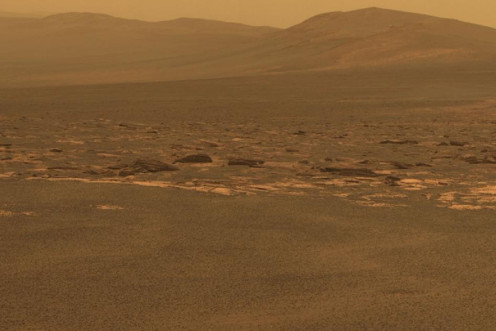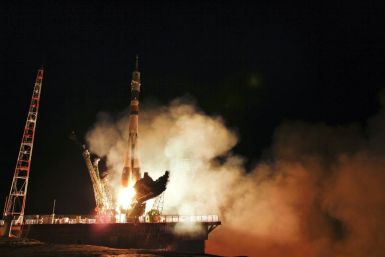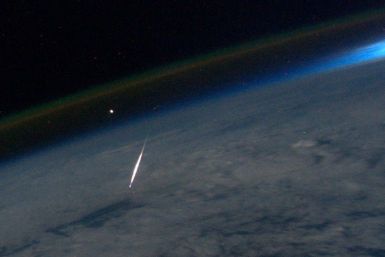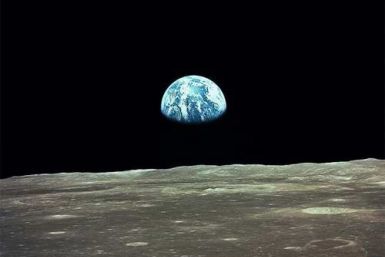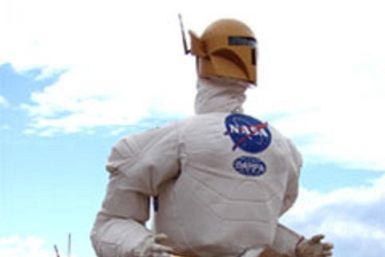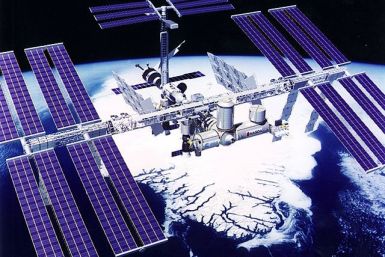Have you ever thought of a trip, or vacation out of this world, somewhere in the space? Well, if your wallet is healthy enough to spend some, you would be able to watch our blue planet turning, while cavorting in zero-gravity with a cup of iced tea.
Russian Space Agency on Thursday said that it will go ahead with the launch of a navigation satellite on Friday only when the safety checks have been carried out after the crash.
An unmanned Russian spacecraft carrying three tons of food, fuel and water for the International Space Station crashed about five minutes after it was launched, NASA officials said Wednesday.
A Russian spacecraft carrying three tons of food, fuel and water for the International Space Station broke down about five minutes after it blasted off on Wednesday.
A Russian rocket carrying three tons of supplies to the International Space Station didn't achieve orbit and instead crashed in the Siberian forest.
A Russian spacecraft bringing supplies to astronauts at the International Space Station failed to reach orbit and crashed on Wednesday, a failure which will not affect the astronauts intended to receive the cargo.
A Russian spacecraft did not reach orbit Wednesday and ignited in the atmosphere, Interfax news said. The ship was launched from Kazakhstan at 9:00 a.m. ET Wednesday and was on its way to the International Space Station.
NASA's human-like 300-pound robot, Robonaut 2 or R2, which reached the International Space Station six months ago to act as an astronaut's assistant, has been powered up for the first time.
the Russian company Orbital Technologies is building a space hotel that will accommodate up to seven celestial travelers.
Energia, the designer and manufacturer of Soyuz manned spaceships, is planning a commercial flight either directly to the moon or to dock first with the International Space Station (ISS) and later pay a visit to the moon.
The European Space Agency (ESA) has released a live 3D video of inside International Space Station (ISS) for the first time in the history of space travel.
Russian firm Orbital Technologies has unveiled its plans for constructing the first-ever space hotels for travelers and researchers which would orbit around 217 miles above ground.
Russian space firm Orbital Technologies has unveiled plans to build a hotel in space.
When in outer space, the view of the heavens is certain to be brighter than that of those on the ground. And with a stunning snapshot of a Perseid meteor bursting into Earth's atmosphere, astronaut Ron Garan proved this to be true, capturing the image through a window of the International Space Station on Sunday.
While the 2011 Perseid Meteor Shower did not disappoint onlookers during its peak on Aug. 12, an astronaut from NASA's International Space Station (ISS) one-upped us Earth dwellers when he posted photos of the shooting stars FROM space.
The International Space Station will be operational until 2020s as NASA, Roscosmos, and partners in Japan, Europe, and Canada have reached consensus regarding the matter. "The international partners have been discussing extending the mission through 2028. At this point, there's no reason we wouldn't do that, said NASA spokesperson Joshua Buck.
Danger looms at the International Space Station (ISS) as Space Junk, mainly parts of old rockets and satellites, either abandoned or destroyed in orbit, is increasingly posing threats to the internationally-developed research facility.
Russian Space Agency Roscosmos went back on its words on Thursday after an uproar over a statement by agency?s deputy head, who said on Wednesday that Russia and its partners plan to sink the International Space Station in the ocean.
The Russian Federal space agency has retracted a decision to sink the International Space Station (ISS) in the Pacific Ocean, after an international uproar over the plan.
All cool images of NASA at your fingertips
Now that NASA is done with its Space Shuttle Program, the $100 billion International Space Station it worked so hard to build will stay afloat in space until at least 2020, according to comments by Russia's space agency.
In an effort to keep outer space clean and junk free, Russia and its partners plan to sink the International Space Station (ISS) in the ocean after its scheduled retirement in 2020.





